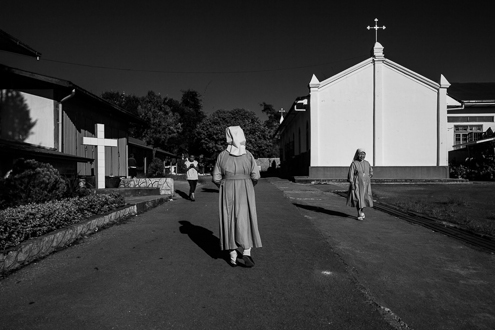With the 30 March census date fast approaching, Burma’s government insists that it has the support of both ethnic political parties and armed groups in the challenge to survey and count the country’s population for the first time since 1983.
Minister for Immigration and Population Khin Yi stated on Tuesday that “all armed groups were ready to cooperate” with the government.
Yet the assertion comes at a time when the nationwide ceasefire process appears to be entering a difficult phase.
Last week, peace talks in the Karen town of Hpa-an were again delayed by at least a month as several ethnic representatives said they needed more time to prepare. Meanwhile, the Shan State Army-South has declined to sign a multilateral agreement drafted by the National Ceasefire Coordination Team. In addition, fresh fighting has resumed in Mansi, southern Kachin State. One prominent ceasefire negotiator told DVB that a major stumbling block in talks was the Burmese military’s unwillingness to heed government orders to observe the ceasefire.
As the peace process plays out, the census risks intensifying divides drawn on lines of identity and religion, Brussels-based NGO International Crisis Group (ICG) warned in a statement on Wednesday. The 1983 census helped to consolidate the colonial legacy that Burma is made up of 135 ethnic groups.
However, ICG suggests that now is the time to move away from such classifications.
The group recommends scrapping all references to identity or religion from the census, referring to questions on ethnicity, religion and citizenship status as “needlessly antagonistic and divisive”.
[related]
ICG suggested that the census could be amended to six questions on demographics that would be simple for people to answer and provide all the data required for the success of future development goals.
The current census paperwork encompasses 41 questions, making up a document that the ICG believes to be overly complicated.
However even a simplified undertaking may well be beyond the government’s reach, particularly when it comes to surveying people in frontier areas so accustomed to mistreatment by Burmese government forces.
Saw Tin Htwe Yee, a village administrator in the Shan town of Khaung Taing, told the United Nations Population Fund that census enumerators have been told to wear civilian clothes in order to play down people’s fear of uniformed officials.
This shows a clear recognition on the government’s part of the uneasy relationship they hold with some people, particularly in ethnic areas in eastern Burma, where the population has suffered amidst government clashes with armed independence groups.
Director-General of Burma’s Population Department Myint Kyaing is out to calm nerves. “People have a right to say their real national race and the name of the national race they said will be documented.
“When the process is over, there will be a discussion on collected facts and figures with the participation of everyone,” Myint Kyaing said.
Whether people will be willing to cooperate is yet to be seen.
Sheng Shadan, of the Kachin Women’s Association of Thailand, an organisation that has documented scores of attacks on Kachin women by the Burmese military, told DVB that women in Kachin State might be reluctant to provide personal and family details pertaining to their religion and ethnicity, as women from minorities have been the targets of past violence.
“Women from the city, they might want to provide information about their religion or ethnicity, but women from conflict areas — they will be reluctant to provide information for security reasons.” Sheng Shadan said.



